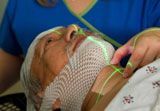Cancer Radiotherapy Side Effects
Cancer radiotherapy was first invented in the late 1890s by an American radiologist called Emil Grubbebased in Chicago. He implemented the newly discovered x-rays into his own machine, which he used to treat patients with cancer; as a matter of fact, his very first patient was a woman who had been suffering from breast cancer. Unfortunately, since cancer radiotherapy was brand new, doctors werenot aware of the consequences of being exposed to radiation. Grubbe eventually died after complications of cancer, while many others lived on to experience cancer radiotherapy side effects.
Common Side Effects of Radiotherapy
Indeed that cancer radiotherapy can bring side effects, especially if the dose of radiation is high. The truth that regardless of the part of the body that is treated, the patient is always prone to experiment various side effects. Nonetheless, it’s important to understand that not everybody reacts the same way to cancer radiotherapy; therefore, you might experience several side effects or none at all. Some of the most common cancer radiotherapy side effects are the following:
- Fatigue – cancer patients that receive radiotherapy often feel extremely exhausted
- Skinproblems–the skin might get irritated, sore or even red
- Lossofappetite–cancer patients have reported that they don’t feel any desire to eat
- Lowerbloodcount–radiation often causes white blood cell count to decrease
How to Deal With Side Effects at Home
If you experience cancer radiotherapy side effects, it’s critical that you take proper care of yourself. Most likely, you will feel extremely weak and fatigued, and that’s why it’s recommended to have your spouse or a relative close to you during the time following your radiotherapy treatment. Your doctor will give you instructions on the steps that you ought to follow in case that you experience cancer radiotherapy side effects. Some tips that you can follow are:
- Since you will most likely feel weak and fatigued, it’s critical that you rest and sleep enough
- Use only the soap recommended by your doctor if you experience skin problems
- Keep the treated area loose, which means avoid tight clothing
- Eat well – fruits and vegetables (balanced)
- Avoid using any type of heating pad or warm rags on the treated area
- Shield yourself from the sun, especially the treated area
Radioprotective Drugs
Even though it has been known that cancer radiotherapy treatment produces side effects, it has been quite difficult for medical researchers to avoid them entirely. In a lot of cases, the patient can’t do much but take it easy and rest as much as they can, while they receive proper nutrition. Nonetheless, in recent years, doctors have started to prescribe radioprotective drugs in an attempt to weaken the impact of side effects in the human body. These drugs are designed to allow the full impact of the radiation to hit the cancerous cells, but at the same time, they protect healthy tissue from getting damaged. They have become extremely helpful particularly in head and neck cancer cases because they provide relief in the patients’ mouth.

